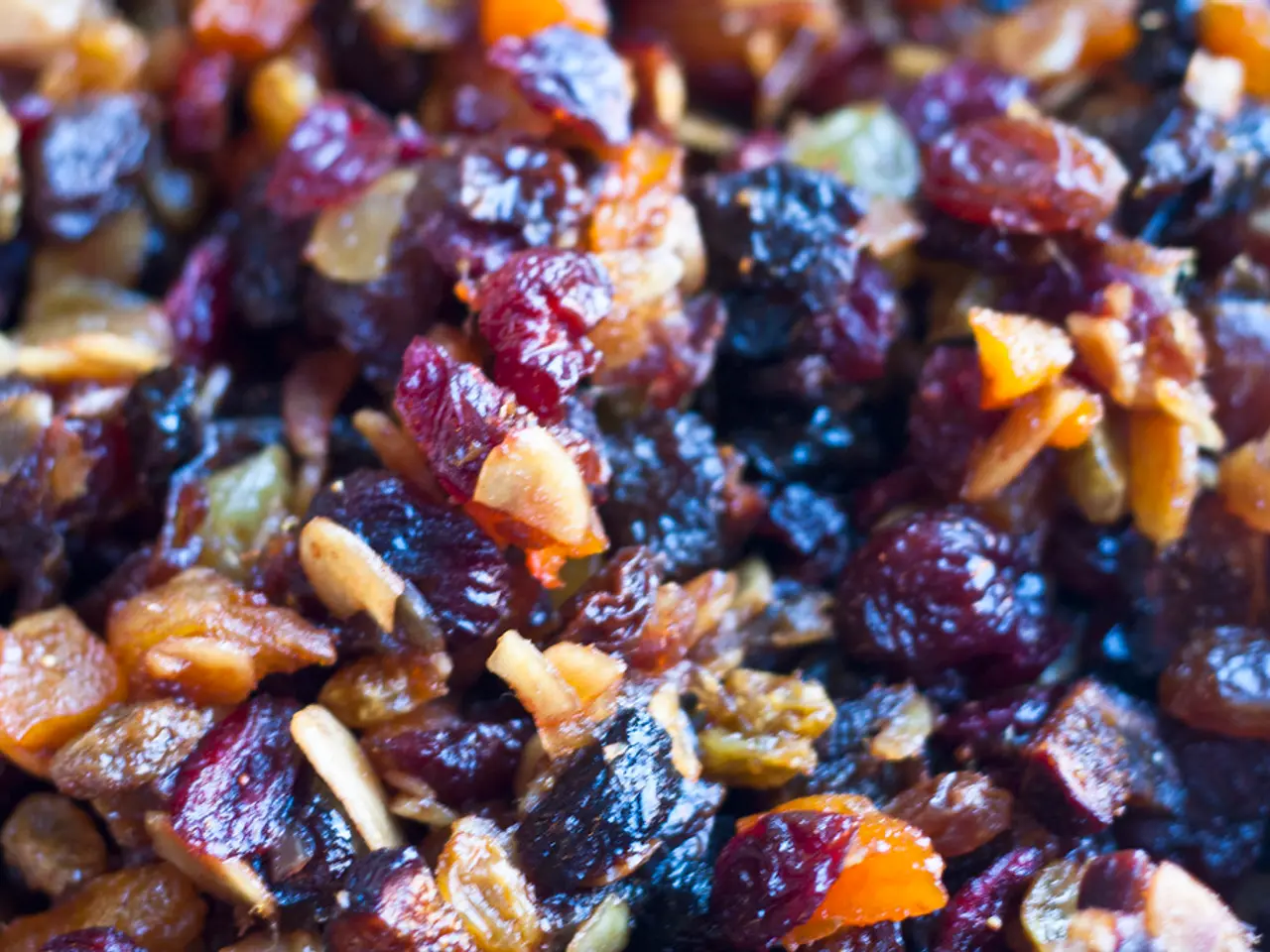Unveiling the Essentials on Antioxidants: A Comprehensive Guide
In the ongoing pursuit of good health, antioxidants have emerged as a vital component of a balanced diet. These naturally occurring chemicals in foods serve as a defense against free radicals, harmful byproducts that can cause cellular damage and contribute to the development of chronic diseases.
Our bodies produce some antioxidants naturally, but it's essential to supplement them through our diet to ensure we're getting enough. A variety of foods are rich in antioxidants, each offering unique health benefits.
Beta carotene, for instance, helps slow cellular damage and supports healthy vision and immune function. Sources include apricots, cantaloupe, mangos, carrots, grapefruit, and bell peppers. Lutein, another antioxidant, contributes to eye health and may reduce the risk of macular degeneration. Kale, spinach, and egg yolks are excellent sources of lutein.
Vitamin C supports the immune system, skin health, and acts as a potent antioxidant to protect cells. Broccoli, Brussels sprouts, sweet potatoes, bell peppers, tomatoes, and citrus fruits like lemons and limes are all rich in Vitamin C. Vitamin E protects cell membranes from oxidative damage and supports immune function. Plant oils, nuts like almonds, seeds such as sunflower seeds, and whole grains like oatmeal are excellent sources of Vitamin E.
Selenium plays a role in antioxidant enzyme systems, protecting cells from damage. Nuts, seeds, whole grains, and foods like eggs, tuna, salmon, brown rice, onions, and various vegetables are rich in selenium.
Polyphenols have antioxidant and anti-inflammatory effects, protecting against cancer, stroke, diabetes, Alzheimer's, and cardiovascular diseases. Green tea, berries, cocoa, red wine, beans, nuts, vegetables, grains, herbs, fruits, turmeric, ginger, and olive oil are all rich in polyphenols.
Carotenoids promote eye health, antioxidant protection, and cancer prevention. They can be found in yellow, orange, red fruits and vegetables, leafy greens, carrots, tomatoes, melons, and more. Zinc, along with vitamin C, helps reduce nutritional risk especially in the elderly and supports immune health. Meat, shellfish, legumes, seeds, and whole grains are good sources of zinc.
Research suggests that antioxidants may reduce nutritional risk, particularly in vulnerable populations such as the elderly, and contribute to overall health by protecting against oxidative stress and inflammation.
To ensure a balanced intake of antioxidants, it's recommended to eat a colorful variety of fruits and vegetables. Aim for about 1½ cups of fruits and 2½ cups of vegetables daily. Incorporate nuts and seeds like almonds, sunflower, and pumpkin seeds for vitamin E and selenium. Incorporate foods rich in polyphenols such as berries, green tea, and spices like turmeric and ginger. Use fresh, frozen, or canned fruits and vegetables to suit your lifestyle while maintaining antioxidant intake.
Snacking on antioxidant-rich blends such as smoothies combining fruits, vegetables, nuts, and seeds can be a fun and nutritious way to boost your daily intake. For example, blueberries, spinach, almonds, and chia seeds make a delicious and healthful smoothie.
In conclusion, a balanced diet rich in antioxidants can help reduce the risk of chronic disease development, support cellular health, and promote overall wellness across all ages. The key is to consume a variety of antioxidant-rich foods, ensuring a diverse intake of these essential nutrients.
Antioxidants can be found in a variety of foods, such as apricots, kale, broccoli, citrus fruits, almonds, and green tea, each offering unique health benefits like slowing cellular damage, supporting eye health, and boosting the immune system. Health-and-wellness enthusiasts are advised to incorporate a colorful variety of fruits and vegetables, nuts, seeds, and spices into their diet to ensure a balanced intake of antioxidants, which can contribute to reducing the risk of chronic disease development and promoting overall wellness across all ages. To make consumption easier and enjoyable, snacking on antioxidant-rich blends like smoothies with blueberries, spinach, almonds, and chia seeds can be a fun and nutritious way to boost daily intake.




